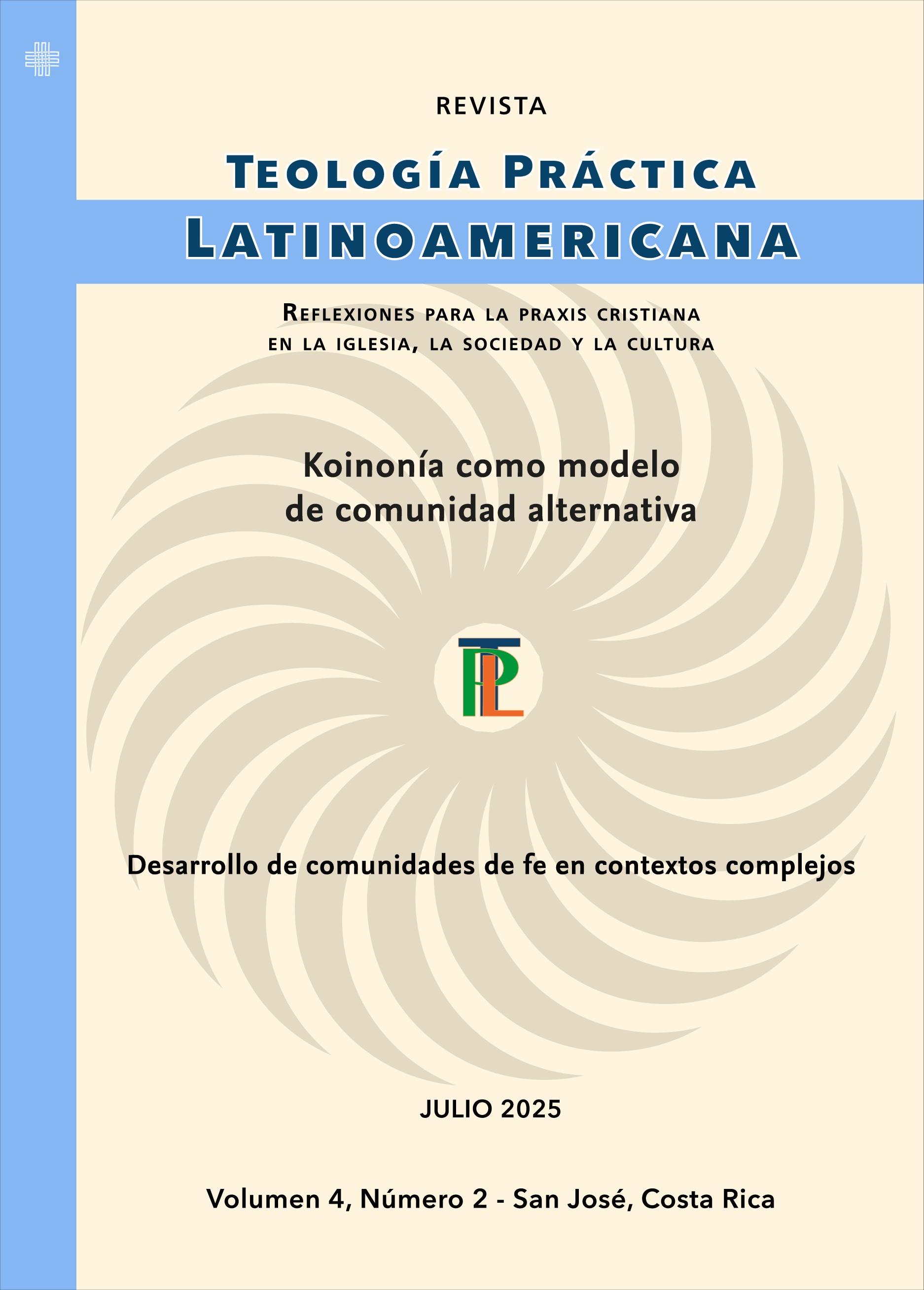Koinonia as an alternative community model
Development of communities of faith in complex contexts
Abstract
When studying faith communities, especially koinonia, it is important to keep in mind that these communities do not exist in a vacuum, but develop in specific social, political and economic contexts. In many cases, these contexts are extremely complex: they are marked by social inequalities, diverse violence, forced displacement, corruption or cultural exclusion. In such cases, the New Testament koinonia model constitutes a prophetic response. In other words, koinonia is an inclusive community, where the value of each person is not determined by his or her social status or background, but by the inherent dignity of every daughter and son of God. This principle is extremely important in contexts of vulnerability and social exclusion, such as impoverished neighborhoods, indigenous communities, migrant groups and communities of sexual diversity, where people are invisibilized, stigmatized and dehumanized. Here, koinonia becomes an alternative faith community that dignifies, welcomes and empowers these people.
Translated with DeepL.com (free version)
